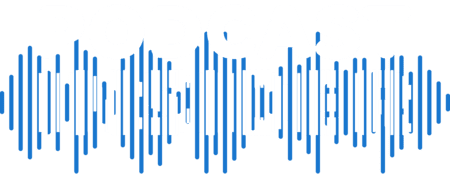You work hard producing your podcast, and the last thing you want is to have your hard work copied by another podcaster. So what do you do if you find out someone is using a part, or worse all, of your podcast without your permission? To protect your rights and intellectual property, the first thing you must do is recognize when your copyright is being violated (more on this later), and the second thing you must do is notify the company that is hosting the offending podcast.
Your notice to the podcast hosting company must comply with the requirements of the Digital Millennium Copyright Act (DMCA) and is usually referred to as a DMCA Takedown Notice. The requirements for A DMCA Takedown Notice are found in the United States Code, Title 17, Section 512(c)(3). DMCA Takedown Notice forms can be easily found using a Google search, and the requirements are simple and straightforward.
The requirements are: (1) identification of the alleged offending podcast, (2) identification of the offending party so the offender’s hosting company can notify the offending party, (3) a statement attesting you have a good faith belief that the use of the offending material is a violation of your copyright, not authorized by you or your agent, or is a violation of the law, (4) that what you are stating in your DMCA Takedown Notice, under penalty of perjury, is accurate and true and (5) your actual signature or an electronic signature.
What happens after you send the offender’s hosting company the Notice is that the hosting company must notify the offender and then remove the offending podcast. However, the offender’s hosting company must restore the offending podcast if the offender files a counter notice with the hosting company. The restored podcast then remains available to the public until you file a claim in a U.S. District Court and you notify the offender’s hosting company that the Court has issued an order to the offender to cease using the offending content.
Now, what exactly violates copyright law when it comes to podcasting? In a previous post, we covered what is (and is not) considered “Fair Use” when it comes to using part of another podcast in your own show. In general, the amount of the podcast used, the purpose and intent, whether or not the market value of your podcast is affected by the use, and whether the work is “transformed” via the other podcaster’s use of your material are determining factors. If another podcaster is lifting large chunks of your show and using it wholesale without adding anything of value themselves, there’s a good chance they are violating your copyright.
However, this is a gray area in the law, and the DMCA Takedown Notice procedure is so easy and straightforward that occasionally the process is used unfairly against podcasters who are clearly acting within Fair Use laws.
I was recently involved in one such DMCA case. One podcaster, I’ll call him Podcaster A, severely criticized another podcaster, Podcaster B, for what he said on his show. A war of words ensued on both shows where each podcaster said nasty things about the other. Podcaster B, who uses Blubrry hosting, inserted audio clips of Podcaster A’s criticisms into his podcast and then followed those clips with a response defending himself. As Blubrry’s General Counsel, I received a DMCA Takedown Notice from Podcaster A instructing me to remove Podcaster B’s podcasts that contained the audio clips of Podcaster A’s comments criticizing Podcaster B.
When I received the DMCA Takedown Notice from Podcaster A, I notified Podcaster B and had our team at Blubrry remove Podcaster B’s alleged offending podcasts. We had no choice but to remove the podcasts, even though I knew that this was clearly a misuse of the copyright law. What Podcaster B was doing in his podcasts was clearly Fair Use of Podcaster A’s content. Podcaster A was using the copyright law as a sword, as a way to punish podcaster B. The concept of Fair Use, as identified in federal statutes and by court cases, clearly allows a person to copy a critical remark and then use that critical remark in his own content to defend himself. How unfair would it be if someone were making critical comments about you and you couldn’t use those comments to defend yourself?
Unfortunately, I did not receive a counter notice from Podcaster B. That would have allowed Blubrry to restore his podcasts, and is the simplest, no-cost way to defend yourself against malicious Takedown Notices. The counter notice forces your accuser to file a claim in court if he really wants your content removed.
I’m hoping at some point more podcasters defend themselves against the malicious use of DMCA Takedown Notices, or as I call them, Shakedown Notices. In the case above, Podcaster A signed an affidavit that Podcaster B’s use of his content was a violation of copyright law. However, when you sign the affidavit contained in the DMCA Takedown Notice you have an obligation to review the offending content to insure it does not fall within Fair Use (Lenz v. Universal Music Corp., 801 F.3d 1126 (9th Cir. 2015). If you fail to make this review you may be liable to your alleged offender for misrepresentation including attorney fees, costs and damages. So, had Podcaster B filed a counter notice, he would not only have been able to get his shows automatically restored, but he may have been entitled to money from Podcaster A!
At Blubrry we want you to protect what you own. You have a right to control your content, and you also have a right to defend that content against malicious attacks. You work hard at what you do, so take a little time to understand your rights under the copyright law – and don’t be afraid to defend your rights if the need arises!
 -Attorney Barry Kantz is General Counsel and CFO of RawVoice and Blubrry. He can be found on Twitter @kantzb.
-Attorney Barry Kantz is General Counsel and CFO of RawVoice and Blubrry. He can be found on Twitter @kantzb.
This post is part of a series on copyright law as it pertains to podcasters. Check out Barry’s post on using music for your podcast without breaking copyright law as well as his post on determining what “fair use” means when it comes to podcasting.





